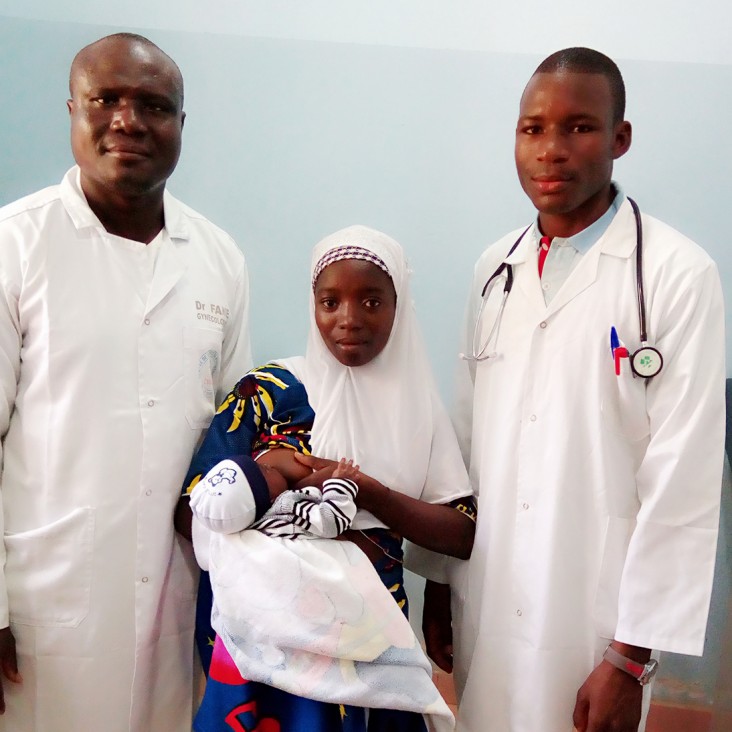Speeches Shim

“When I saw the very small baby, I had lost hope. Today, thanks to the know-how of the Kadiolo maternity health workers … I have a healthy child.” Fatoumata Kone
Fatoumata Koné is 18-years-old and lives 12km from the nearest district hospital in Kadiolo, southern Mali. Pregnant for the first time, she gave birth prematurely at 32 weeks gestation to a baby boy, named Younoussou Koné, who was very small, weighing just 1,410 grams, 1 kilogram below the minimum 2500 grams needed classified as normal birthweight. Fatoumata and her baby were admitted to the hospital’s Kangaroo Mother Care (KMC) unit the same day.
KMC involves continuously carrying a premature or low birthweight baby on the chest using early and prolonged skin-to-skin contact, combined with exclusive breastfeeding (direct suckling or cup). This practice helps improve health and prevent the death of premature and small newborns by protecting against infection, regulating body temperature, breathing, and brain activity, and supporting bonding between mother and baby1. Once the baby’s health is stable and she/he gains weight, and the mother is confident she can continue KMC at home. Thus, the mother and baby are discharged from the hospital. They return to the facility for monitoring of weight gain, feeding practices and to ensure there are no signs of infections or other complications.
The survival of Fatoumata’s baby is largely credited to the gynecologist and the midwife trained on the management of preterm babies using KMC. Both were trained with technical and financial support from the USAID’s High Impact Health Services Project. After delivery, Fatoumata and her baby were admitted to the hospital for 15 days, and continued follow-up post discharge through outpatient visits. At his three-month follow-up, Younoussou weighed 3.35 kg and remained healthy without any other complications. Sixteen months later, he is thriving: he achieved milestones for his age and is in good nutritional status.
Fatoumata is grateful for the care she received for her baby. "I gave birth to a very small child and my pregnancy was not at term. When I saw the very small baby, I had lost hope. But the midwife explained to me that there is a method that will help to save him. It's about carrying him on my chest to keep him warm as if he were still in my belly. I did not hesitate, I did it immediately”, explains Fatoumata Kone. “Today, thanks to the know-how of the Kadiolo maternity health workers at the hospital and my community health center in Lofinè, I am very happy to have a healthy child that pleases my whole family”, adds Fatoumata.
Since 2015, the project has trained 931 providers from 466 health facilities on KMC. Between 2015 and 2018, 48% of low birthweight babies were initiated on KMC in facilities supported by USAID. The High Impact Health Services is a 5-years project of 46 million aiming to reduce or eliminate maternal, newborn, and child deaths in Mali. The project is implemented in Kayes, Koulikoro, Sikasso regions, six communes of Bamako and Gao district. It provides support to 37 district hospitals, 762 primary health facilities and approximately 6,900 villages. It works with 1577 community health workers and more than 17, 200 community volunteers.

Comment
Make a general inquiry or suggest an improvement.